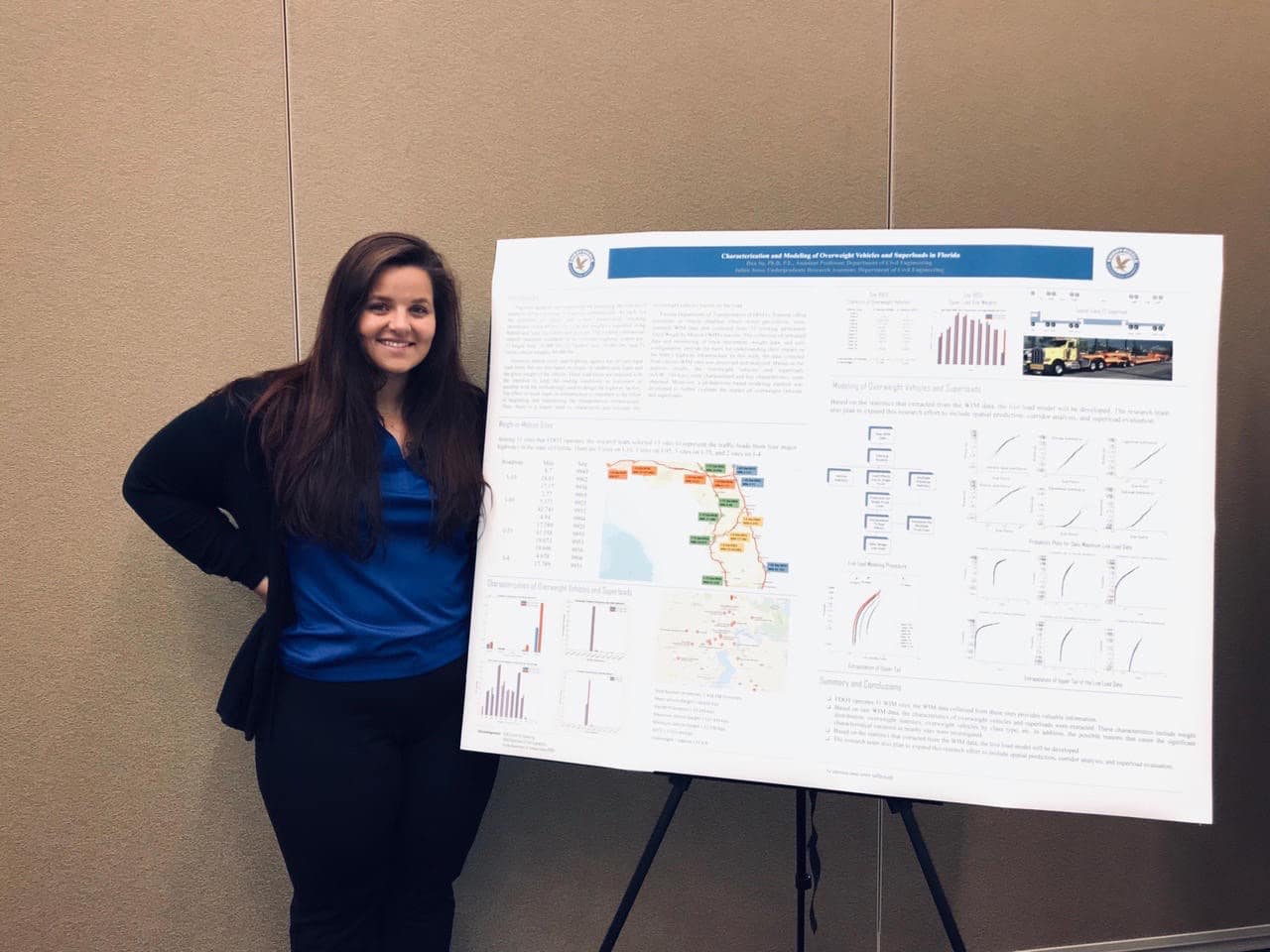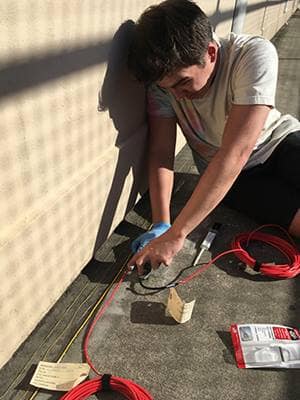Master’s Students Leverage Big Data, Optical Fiber Sensors to Enhance Transportation Safety

Keeping roads and bridges safe while spending taxpayer money wisely is a complicated balancing act that two Civil Engineering graduate students at Embry-Riddle Aeronautical University are working to simplify using advanced technologies.

Master’s student Parker Brooks works with sensing equipment in a Civil Engineering lab on the Daytona Beach Campus. (Photo: Parker Brooks)
Students Julian Jesso and Parker Brooks have been awarded Dwight David Eisenhower Transportation Fellowship grants from the U.S. Department of Transportation’s Federal Highway Administration.
Jesso, who won a $31,500 grant including tuition assistance and a monthly stipend, is developing a new algorithm for infrastructure management and maintenance planning, using artificial intelligence and big data from a variety of sources, including long-term bridge condition data, pavement performance data and Weigh-in-Motion traffic load data reflecting the weight of each vehicle on the road.
Scheduled to earn her master’s degree in May, Jesso said her project is “a unique take on big data that utilizes it to gather big conclusions.”
Dan Su, assistant professor of Civil Engineering and faculty adviser on Jesso’s and Brooks’ projects, said, “This management and maintenance plan will optimize the allocation of funds and improve the resilience of infrastructure, which subsequently saves taxpayers money.”
Brooks, who will receive $5,000, will work on structural health monitoring of bridges using optical fiber sensors, which detect temperature, strain and vibration information, as well as numerical modeling to predict long-term performance. Brooks’ work on this project will dovetail with another study he is participating in on steel composite bridges.
“Traffic volumes are continuously increasing, and truck loads are getting heavier,” said Brooks, who is in the first year of his master’s program. “These affect the long-term performance of the structures they pass over.”
When Jesso heard she had won the award, she said she was in shock.
“I greatly value the opportunity that Embry-Riddle has given me to even be considered for this award,” she said. “This proved to me that my hard work does pay off. I cannot thank Dr. Su enough for guiding me to where I am in this research and everybody else in the department for the help along the way.”
These grants are part of a combined total of $78,000 awarded this academic year to Civil Engineering master’s degree students through the Dwight David Eisenhower Transportation Fellowship Program. Additionally, fellow Eagle Fanny Kristiansson won a $31,500 grant to make emergency evacuations safer and faster.

 Michaela Jarvis
Michaela Jarvis